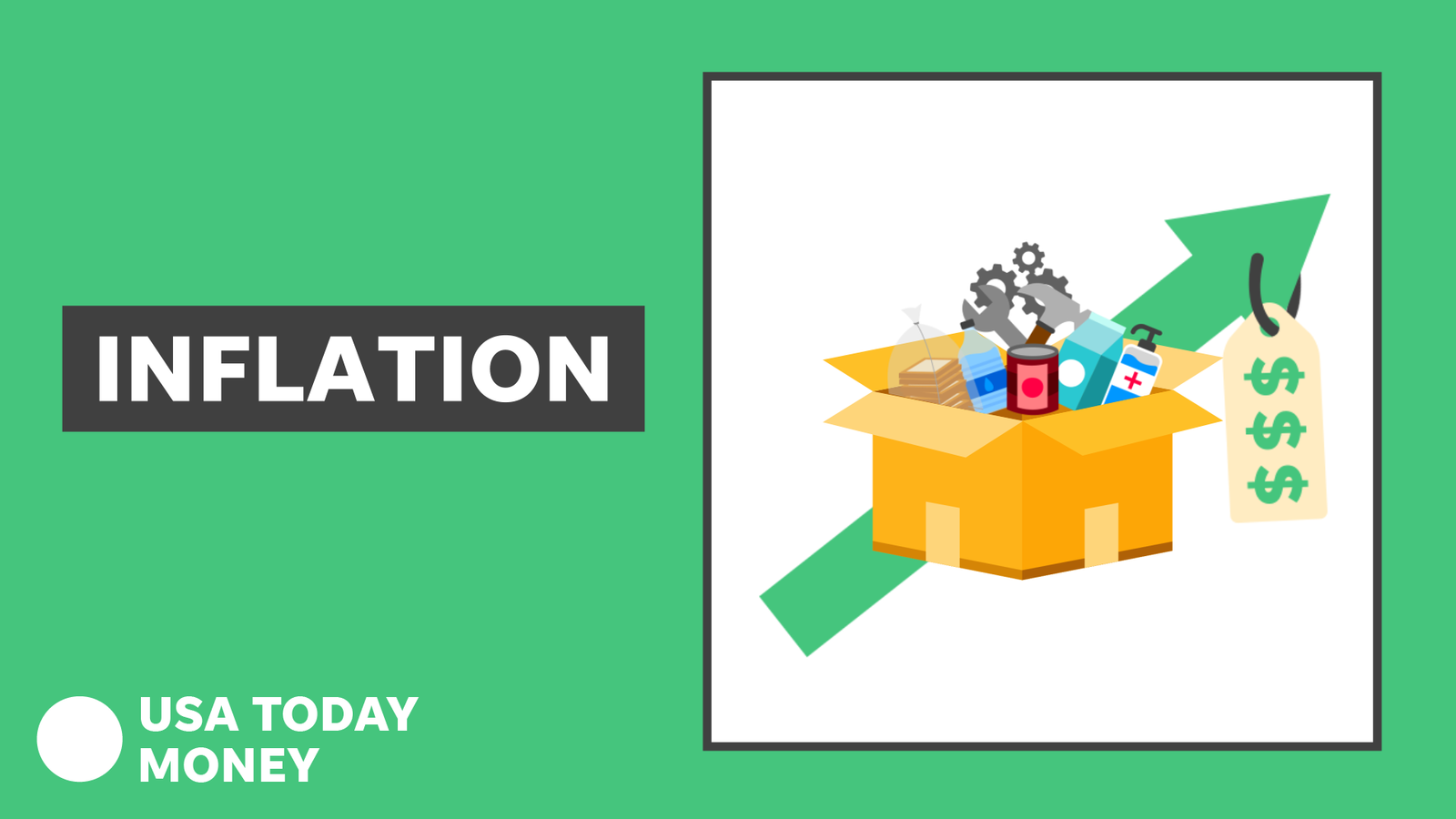
Rising inflation impacts the stock market and more
Rising prices are scaring investors. Here’s how inflation works, how it affects investments like stocks and funds and how to protect your money.
Common wisdom dictates that as we steer our savings toward retirement, we should gradually bulk up on bonds.
Bonds are supposed to be safe, predictable, and boring: the perfect antidote to mercurial stocks.
Lately, though, bonds have felt anything but safe. Between August 2020 and October 2022, a benchmark Bloomberg bond index plunged 18%. Even now, the index remains roughly 10% below that 2020 high.
The bond bloodbath has prompted some investors to question whether it is time to rewrite the rules of retirement saving.
“It’s been a rough – really, a rough 10 years,” said Ashley Folkes, a certified financial planner in Birmingham, Alabama.
Recently, Folkes has watched clients back out of the bond market in favor of alternative investments, which they deemed safer, and which weren’t shedding value with every passing month.
Bonds betrayed investors in 2022
Bonds are supposed to provide a hedge against stocks. When stocks go down, bonds go up – or, at least, they don’t go down very much.
In 2022, the financial market seemed to turn upside down. Stocks lost 18.6% of their value that year, as measured by the S&P 500. And bonds lost 13.7% of their value, according to the Vanguard Total Bond Market Index. Inflation pushed that figure to 20%, the worst bond return in 97 years, according to a NASDAQ analysis.
Sinking bond values inspired a question that has made the rounds in financial circles: Is the 60/40 rule dead?
The rule instructs that a worker approaching retirement, and anyone seeking investment stability, should aim to have 60% of their holdings in stocks and 40% in bonds.
The stocks yield robust returns. The bonds provide modest but stable income and serve as a buffer when stocks go south.
Most advisers say that, even after the events of 2022, the rule is not dead.
“The rules still apply; 2022 was an anomaly,” said Jonathan Lee, senior portfolio manager at U.S. Bank.
2024 is ‘a good time to hold bonds’
Investment advisers say now is a fine time for bonds. They are a good investment in 2024, experts say, for the same reasons they felt like a bad investment in 2022.
That year, the Federal Reserve embarked on a dramatic campaign of interest-rate hikes in response to inflation, which reached a 40-year high.
Bond funds tend to lose value when interest rates rise, and when inflation ticks up.
“The aggressive nature of those interest rate hikes contributed to the aggressive decline of bond values,” Lee said.
Rising interest rates tend to lift rates on new bonds. That makes older bonds less attractive because they have lower rates. That cycle pushes down the value of bond funds.
Rising inflation makes bonds less attractive because it erodes their value. If a bond pays 4% interest, and inflation reaches 5%, then the bond’s effective rate of return is negative.
Today, the bond landscape looks very different. Inflation has eased. Interest rates remain elevated, which means new bonds are paying solid rates.
“It’s actually a good time to hold bonds because bond interest rates are actually outpacing inflation for the first time in years,” said Maria Bruno, senior financial planning strategist at Vanguard.
Many forecasters expect the Federal Reserve to begin cutting interest rates later this year. Rates stand at a 23-year high.
If interest rates dip, then new bonds generally become less attractive than older bonds. That tension should drive up bond funds.
“There is value yet to be realized in those funds,” Lee said.
Theodore Haley, a certified financial planner in Beaverton, Oregon, put it more strongly: “Bonds are more attractive now than they have been in more than a decade.”
Vanguard forecasts the bond market to rise by roughly 5% per year over the next 10 years, Bruno said.
In other words, analysts expect the bond market to behave in the years to come.
“Bonds are probably more attractive now, for those approaching retirement or in retirement than they were before 2022,” Lee said.
Bonds are a retiree’s friend, advisers say
Bonds have long enjoyed a reputation as the retiree’s friend.
Investment advisers generally counsel Americans to invest more heavily in stocks when they are younger, and to gradually shift to bonds as they approach retirement.
Here’s the theory: Stocks perform better than bonds in the long run, but they are volatile. Bonds yield lower returns, but they are more stable.
“The point of bonds is that they should give you stability, and they should give you income,” through interest payments. “That’s different from growth. Your expectations should be different,” said Todd Jablonski, global head of multi-asset investing for Principal Asset Management.
Jablonski suggests precise targets for bond holdings in an investment portfolio by age: 21% bonds at age 50, 43% bonds at age 60 and 59% bonds at 70.
Some investors buy individual bonds. Many more of us invest in the bond market through mutual funds or exchange-traded funds, buying shares in a pool of investments that favor bonds. Another option is the target retirement fund, which is typically set up to gradually increase bond holdings over time.
How’s your 401k doing after 2022? For retirement-age Americans, not so well
No two investors are alike; the rules aren’t for everyone
Investment advisoes caution, however, that no two investors are alike. The 60-40 rule, and the portfolio targets suggested above, are not for everyone.
Anyone who expects a large income stream in retirement, such as a workplace pension or an apartment rental business, can probably get away with fewer bonds in a retirement account, experts say.
Similarly, a multimillionaire, who expects to pass along most of the family fortune to the children, can probably afford to lean heavily on stocks.
And there’s a certain kind of investor, aggressive and risk-tolerant, who waits until retirement to begin shifting savings into bonds. That strategy can maximize your earnings in the stock market. But it can also backfire, especially if you retire when stocks are down.
“You can’t just wait till you retire to get more conservative,” said Keith Singer, a certified financial planner in South Florida.

